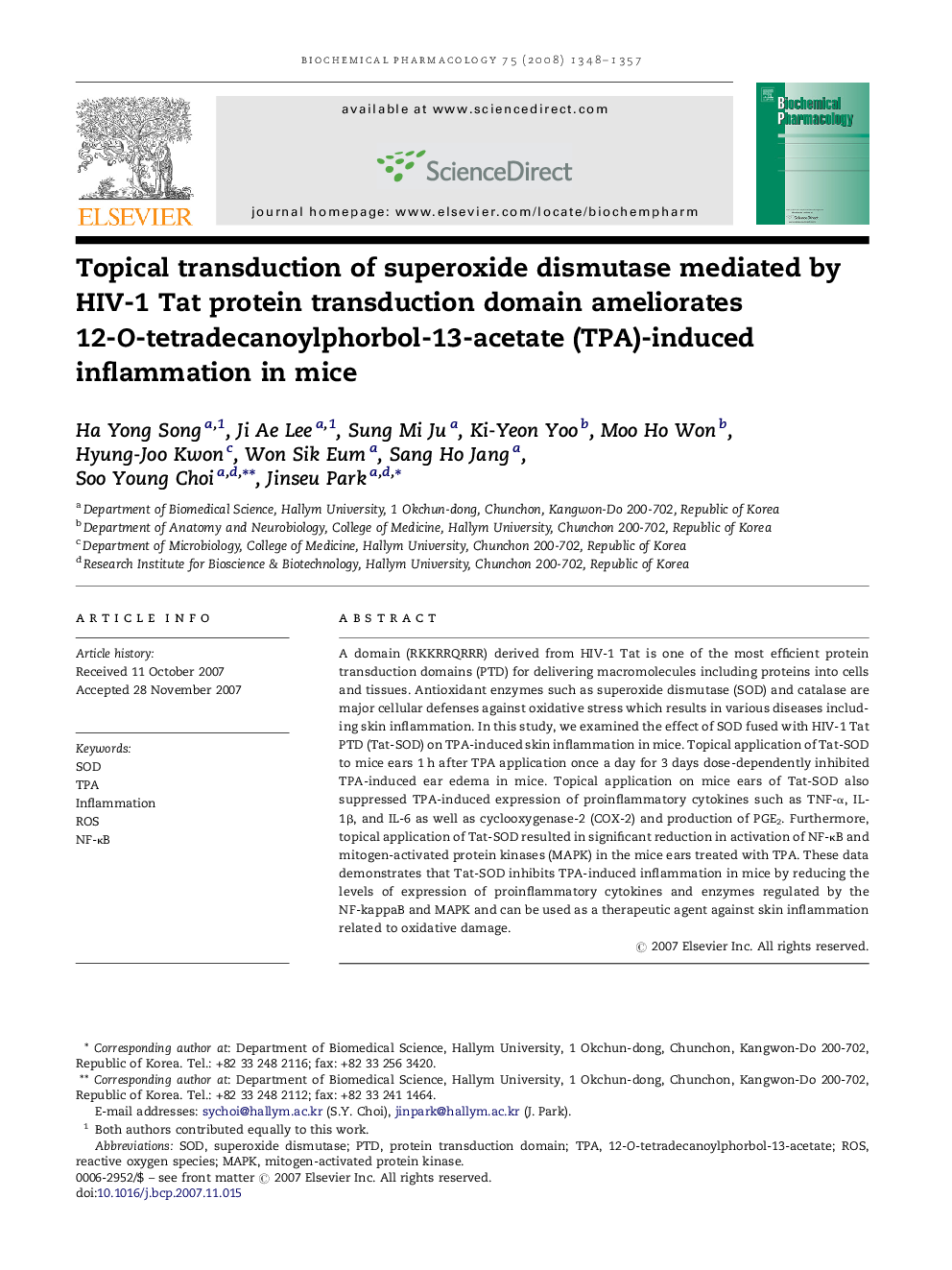| Article ID | Journal | Published Year | Pages | File Type |
|---|---|---|---|---|
| 2514512 | Biochemical Pharmacology | 2008 | 10 Pages |
A domain (RKKRRQRRR) derived from HIV-1 Tat is one of the most efficient protein transduction domains (PTD) for delivering macromolecules including proteins into cells and tissues. Antioxidant enzymes such as superoxide dismutase (SOD) and catalase are major cellular defenses against oxidative stress which results in various diseases including skin inflammation. In this study, we examined the effect of SOD fused with HIV-1 Tat PTD (Tat-SOD) on TPA-induced skin inflammation in mice. Topical application of Tat-SOD to mice ears 1 h after TPA application once a day for 3 days dose-dependently inhibited TPA-induced ear edema in mice. Topical application on mice ears of Tat-SOD also suppressed TPA-induced expression of proinflammatory cytokines such as TNF-α, IL-1β, and IL-6 as well as cyclooxygenase-2 (COX-2) and production of PGE2. Furthermore, topical application of Tat-SOD resulted in significant reduction in activation of NF-κB and mitogen-activated protein kinases (MAPK) in the mice ears treated with TPA. These data demonstrates that Tat-SOD inhibits TPA-induced inflammation in mice by reducing the levels of expression of proinflammatory cytokines and enzymes regulated by the NF-kappaB and MAPK and can be used as a therapeutic agent against skin inflammation related to oxidative damage.
